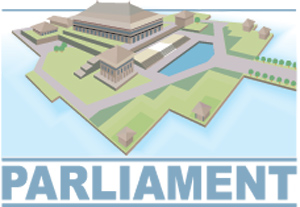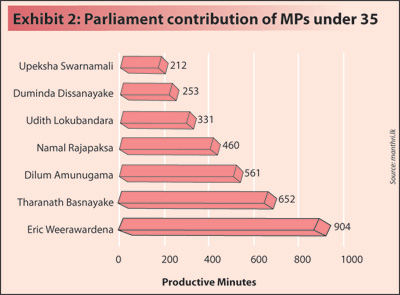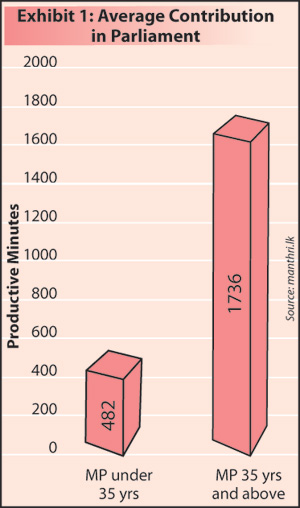Columns
GL ‘choosy’ on clarification sought by Ranil regarding Mahinda-Modi talks
 External Affairs Minister G.L. Peiris did not mince his words in Parliament on Wednesday, when he categorically stated that the devolution of police powers to Provincial Councils was not up for discussion at the Parliamentary Select Committee (PSC), loosely termed by officials as the “One Sri Lanka Committee.”
External Affairs Minister G.L. Peiris did not mince his words in Parliament on Wednesday, when he categorically stated that the devolution of police powers to Provincial Councils was not up for discussion at the Parliamentary Select Committee (PSC), loosely termed by officials as the “One Sri Lanka Committee.”
And that, according to Minister Peiris, was what President Mahinda Rajapaksa told the new Indian Prime Minister (PM) Narendra Modi, when the two met in New Delhi late last month.“We made it clear to the Indian side ……….that the Government of Sri Lanka (GoSL) has a very definite view with regard to the devolution of police powers. We made it crystal clear that the devolution of police powers is not acceptable,” said the Minister who was part of the Sri Lanka delegation at the bilateral talks held in New Delhi on May 27.
The minister’s statement came in response to a query from Opposition Leader Ranil Wickremesinghe who sought clarification on conflicting reports on what transpired during the talks between the two leaders. Clarification was indeed needed, as the news release issued by the Office of the Presidential spokesman of his International Media Unit, detailing the outcome of the talks, only made reference to President Rajapaksa describing to the Indian leader the initiatives Sri Lanka had taken with regard to rehabilitation, resettlement and reconstruction, and the ongoing reconciliation process. However, Indian Foreign Secretary Sujatha Singh told the media that, at the talks, the Indian PM had requested the GoSL to expedite the process of national reconciliation, and said, “early and full implementation of the 13th Amendment and going beyond would contribute to this process.”
Minister Peiris chose to play down the references made to the 13th Amendment during his statement to Parliament, saying there were no detailed, in depth discussion of constitutional issues, but that it was among the matters that were discussed. He said President Rajapaksa explained with great lucidity, the Government’s position, which was that, “the best mechanism, indeed the only available mechanism “for the accomplishment of a consensus among the people of the country is the PSC, and that, these are matters that involve amendments where necessary to the Constitution of the Republic.
“A minimum threshold of agreement with regard to the core issues involved in this piece of legislation is a condition precedent for orderly and proper implementation of the 13th Amendment” he said, adding that, this task was within the ambit of Parliament and not a matter for the executive. “It is therefore. right and proper that these deliberations take place within a PSC,” he added.
It’s no secret that the PSC headed by House Leader Minister Nimal Siripala De Silva has been a non starter with both the main opposition UNP and the Tamil National Alliance (TNA), the vital component if the Committee is to make any headway, failing to name members to it. So it’s only a UPFA Committee which, however good or genuine its intentions, will be unable to come up with any proposals that would facilitate the “consensus’ that the External Affairs Minister spoke of.
And going by the Government’s stance on devolution of police powers, things are likely to remain deadlocked with the new Indian government on the issue of reconciliation, as was the case with the previous Congress-led government. While the Government’s decision to talk straight to the Indian side can be appreciated, what is troubling is its usual practice of not being forthcoming with the people of the country, about a matter of such public importance.
There are other matters that are troubling where this Government is concerned. It was revealed in Parliament this week that President Mahinda Rajapaksa’s Chief of Staff, Gamini Senarath, in addition to holding this top post, also heads six other institutions, which include his role as Chairman of the People’s Bank, Litro Gas Company, Litro Gas Terminal Lanka Ltd., Canwill Holdings Ltd and People’s Leasing and Finance PLC. While this brings up the question of how ethical it is to hold such positions, while serving in the President’s Office, it also raises the question of whether one man is so super efficient that he can look after the interests of six other intuitions while discharging his duties in the President’s Office.
As JVP MP Anura Kumara Dissanayake queried in the House, does Mr Senarath have divine powers to handle all these businesses. “How can he handle all these businesses, unless he is the Vismakarma – the builder of the universe?” he asked. Of course, Mr Senarath’s multiple appointments to government institutions is more the rule than the exception where the administration of President Mahinda Rajapaksa is concerned. There are many others who hold several positions in Government institutions and also enjoy the multiple perks that go with them.
On Friday, questions raised about allegations being leveled against Secretary to the Ministry of Finance and Planning D.B. Jayasundera, were sidestepped by Deputy Finance Minister Dr Sarath Amunugama. “If you have a problem about Mr Jayasundera, such questions must be referred to the President, as he is the one who made the appointment,” Dr Amunugama said.
Mr Jayasundera is among those who hold multiple positions, but last week, his role as Secretary to the Ministry of Economic Development came to an end, when he was removed from the post and a new appointment made.
Young parliamentarians: Little seen, less heard!
 “Young Parliamentarians”, as the definition goes, are those at or below 35 years of age. Sri Lanka has lower youth representation in parliament than either the world average or the Asian average, What’s more, as far as legislative participation goes, even these few young parliamentarians in Sri Lanka seem to be more seen than heard.
“Young Parliamentarians”, as the definition goes, are those at or below 35 years of age. Sri Lanka has lower youth representation in parliament than either the world average or the Asian average, What’s more, as far as legislative participation goes, even these few young parliamentarians in Sri Lanka seem to be more seen than heard.
Just a handful in Parliament: Sri Lanka has precisely seven MPs in parliament who are below the age of 35. That means only 3% of the parliamentarians in Sri Lanka are “youth” This is half the global average of 6% and less than the Asian average of 4%. Seen but not heard: The statistics on what these youth are contributing in parliament is even more of a concern, however. Manthri.lk is a platform that measures productive contribution by MPs in parliament. The average youth MP contributes just around one forth (28% to be precise) of the average contribution of non-youth MPs (Graphic 1).
Not all in the same boat: While the average constructive time contributed by young parliamentarians is around 482 minutes, some are clearly more engaged than others (Graphic 2). The highest contributor in this young set (Eric Weerawardena) Clocks in for times as much productive time as the lowest (Upeksha Swarnamali).
But even the highest participating MP under 35 (Eric Weerawardena), contributes only a little over half of the average MP over 35. Opposition is Youth less: Another fascinating finding from the Manthri.lk data is that none of the young parliamentarians are in the opposition! Upeksha Swarnamali, who was a popular actress before entering politics, was the only youth MP in the opposition, after having won the second highest preference votes in Gampaha. But in September, 2010 she crossed over to the government. That has now left the Opposition ranks without a single youth.
Why are young parliamentarians contributing so little in parliament? Do they lack initiative or are they being suppressed by the seniors? Your thoughts and questions are welcome at www.manthri.lk /en/blog; or by text to the manthri.lk hotline: 071-4639882.


